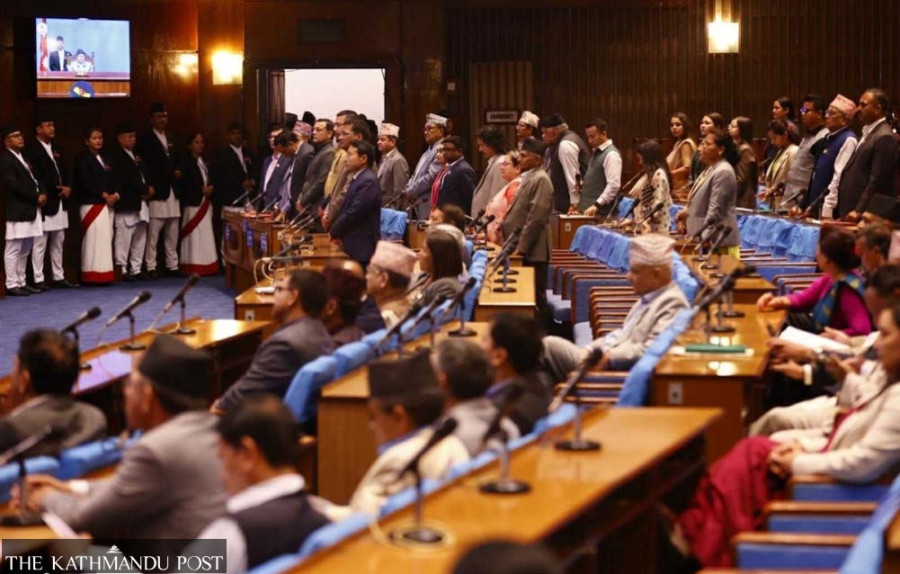Editorial
Holding House hostage
What people want to see are healthy debates on public issues and law-making on that basis.
Nepal’s federal parliament has been paralysed for nearly two weeks since May 27—except on May 29, the day of the budget’s unveiling—as opposition parties obstructed the House of Representatives. They have been demanding a probe panel to investigate allegations over a ‘visit visa scam’ involving Home Minister Ramesh Lekhak, with some also calling for his resignation. When such allegations surface, the opposition has the right to raise genuine questions and demand an impartial probe; however, obstructing the Parliament and resisting its function undermines the democratic process itself. As parliamentary meetings are stalled, the much-needed discussion on the budget has yet to start as well.
Nepal’s Parliament is notorious for frequent deadlocks, and for record times. The CPN-UML, for instance, has a history of obstructing the House continuously for five weeks in 2001, demanding the resignation of the then prime minister Girija Prasad Koirala over the Lauda Air scam. Similarly, the Maoist Centre halted parliamentary business in 2014, asking the government to withdraw murder charges against 13 of its cadres in a 2004 case. In 2021, the UML stalled the House when Speaker Agni Sapkota decided not to suspend 14 lawmakers who had left the party to form the CPN (Unified Socialist). That obstruction lasted eight months. In 2023 too, the UML, the Rastriya Prajatantra Party and the Rastriya Swatantra Party disrupted the House over PM Pushpa Kamal Dahal’s controversial remarks. Opponents thus see House obstruction as the first and the best way to get their demands addressed.
At times, the lawmakers have acted unruly. In 2010, some Maoist lawmakers tried to snatch away the budget briefcase from the then finance minister Surendra Pandey. On and off, the House has also become a battleground, with lawmakers breaking chairs and tables in protest, scuffling with marshals, and even hurling objects at the House Speaker. But that is only half the story. Hindrances in the House also partly owe to the ruling parties’ tendency to dismiss the concerns of the opposition forces. Many lawmakers now say it is futile to speak in the House as their concerns are seldom addressed. Such a lack of faith in the sanctity of the legislative process, on the part of the leaders of both ruling and opposition forces, is a dangerous development for Nepali democracy.
Disrupting Parliament is akin to holding people’s mandate hostage. Unlike the representatives of the two other government branches, people directly elect their lawmakers, at least in the all-important lower house. A vicious cycle of obstruction not only erodes the public’s faith in lawmakers but also the parliamentary practice. For instance, the first term of the Parliament formed following the November 2022 elections was fruitless, as it ended without passing a single bill. Subsequent sessions have also been far from productive.
What Nepali people want to see are healthy debates on all issues of public concern and then the House making necessary laws on that basis. But this can only happen if our political class starts seeing Parliament as more than a setting for making and breaking governments and to internalise its central role in the democratic process.




 10.12°C Kathmandu
10.12°C Kathmandu













